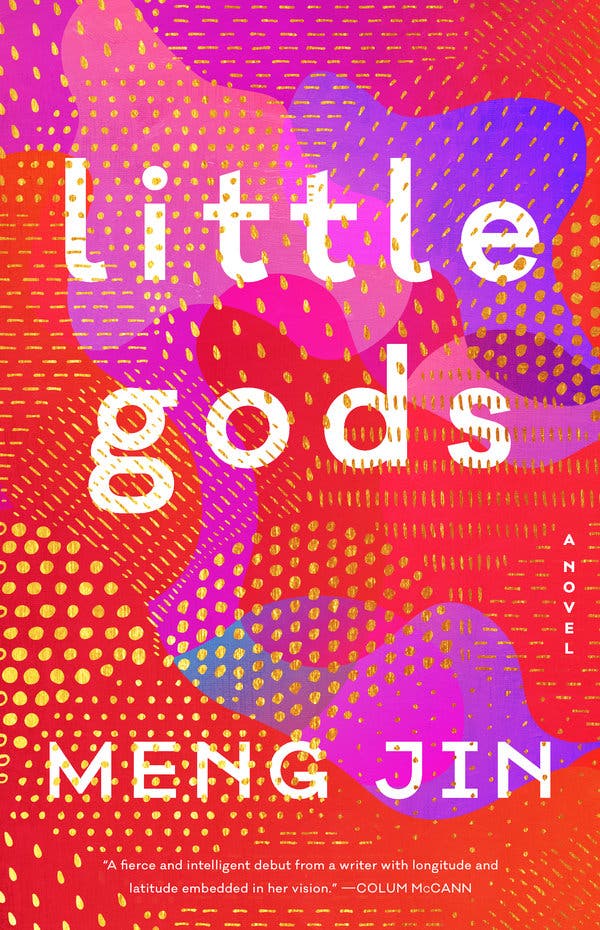LITTLE GODS
By Meng Jin
At the heart of Meng Jin’s ambitious debut novel, “Little Gods,” is a brilliant Chinese physicist named Su Lan. Having grown up in poverty, surrounded by no relatives and “the everywhere smell of sewage and manure,” she is bent on erasing her past.
But though she is the novel’s center, Su Lan never tells us her struggles directly. Her teenage daughter, Liya, born in a Beijing hospital on the last day of the Tiananmen Square protests, thinks, “In the universe, there exist objects that cannot be seen … that assure us of their existence simply by the way they affect the behavior of nearby lesser objects.” And so it is with Su Lan, whose 17-year decline from career glory to self-ruin — a decline precipitated by Liya’s birth — is refracted through the perspectives of her friend Zhu Wen, Liya and the father Liya has never known.
Raised in America, Liya feels pressure to adhere to her Chinese heritage, but not merely for a sense of belonging: “I had seen what people who were from places were like, how they glittered with solidity and substance.” Meeting a vision of her future self, she marvels: “How attractive this person was to me, this person who, in her lifetime, filled in rootlessness with a story so deep in the mud of history it could be passed as identity — as self!”

And yet, another part of Liya looks askance at these expectations, would prefer to remain “untethered” to China, to history. After Su Lan’s death, Liya’s search through her mother’s meticulously emptied Shanghai apartment is devastating. At first Liya feels as if she’s “inside some elaborate prank” set up by Su Lan, whom she “half expected … to jump out from some corner and laugh loudly in my face.” But the setup soon turns serious: “In the white walls and the twin mattress on the bedroom floor, in the foldout table with a single chair, I read a challenge. I was furious, I wanted to undo her simplicity, her tracelessness, I accepted.”
The moment brings to mind the opening of Elena Ferrante’s Neapolitan novels, when Lenù Greco finds Lila Cerullo has eliminated all evidence of herself. Reminiscent of Ferrante, too, are Jin’s protagonist’s larger-than-life talent, drive and perversity. In her intelligence, vulnerability, volatility, desperation, narcissism and self-destructiveness, Su Lan — despite her voicelessness — is as complex a protagonist as any I can recall. She is also portrayed with exquisite irony. Beautiful and successful yet plagued by feelings of fraudulence, she cannot help dismissing Liya’s budding belief that “being alive was more than a meeting of matter, electricity and force.”
“You’re stupid after all,” Su Lan tells her daughter, her insistence on objectivity undeniably shot through with subjectivity.
I did wish Jin’s narrative had been better signposted. The oscillating viewpoints (including an early focus on the hospital nurse, who turns out to be less important than this implies) can be disorienting, especially when accompanied by unexplained shifts in time and place. Do these matter in a novel that interrogates the linearity of time, among other things? Su Lan may have one answer, and the reader another.
It is a testament to the story’s power that, despite the novel’s structural flaws, Liya’s duel with her mother nonetheless shines. Her excavation of all that Su Lan buried — including the truths of Liya’s parentage — is galvanizing. “Little Gods” expands the future of the immigrant novel even as it holds us in uneasy thrall to the past.
 EU News Digest Latest News & Updates
EU News Digest Latest News & Updates



